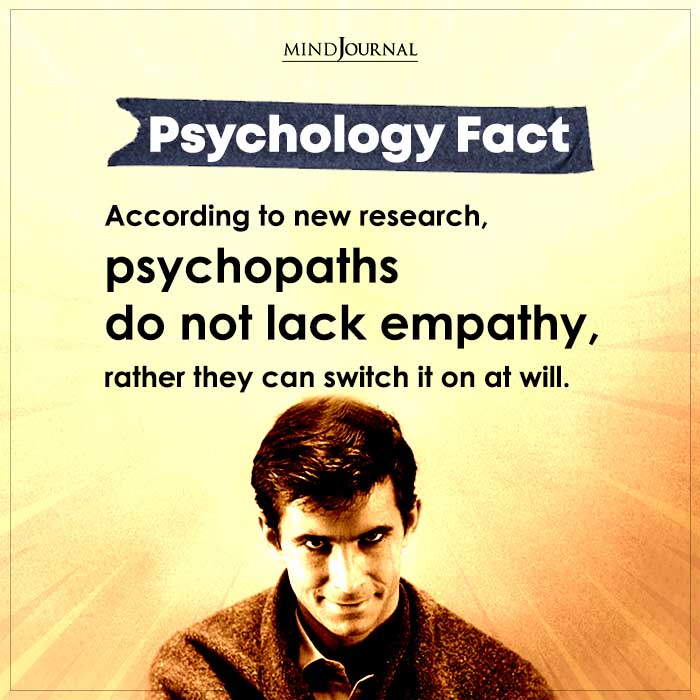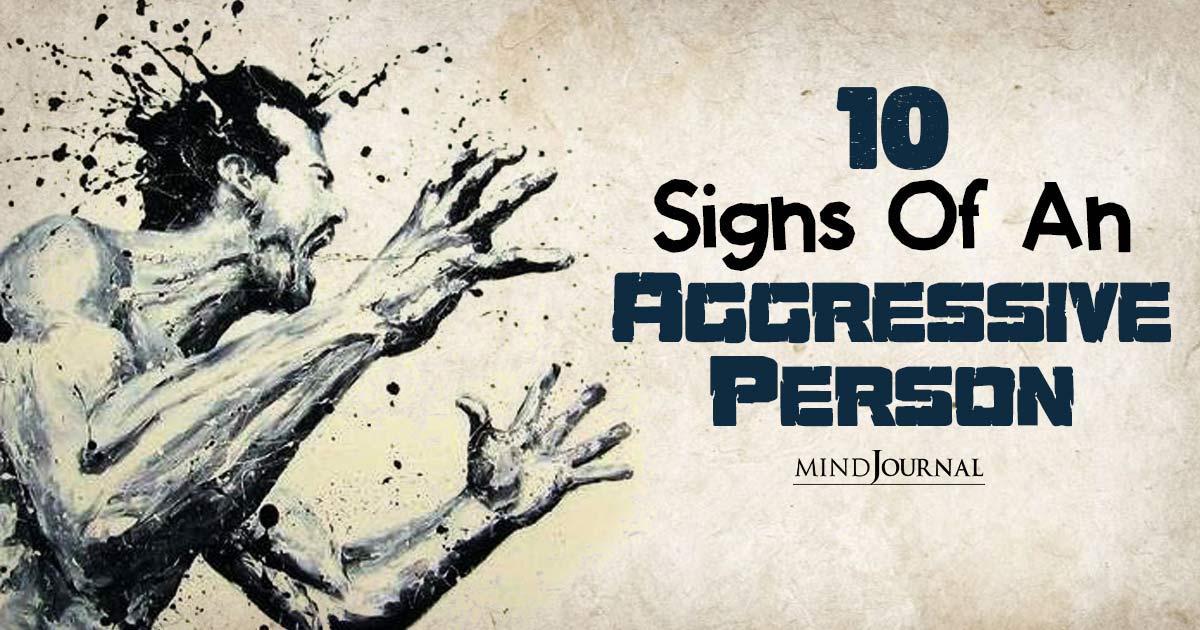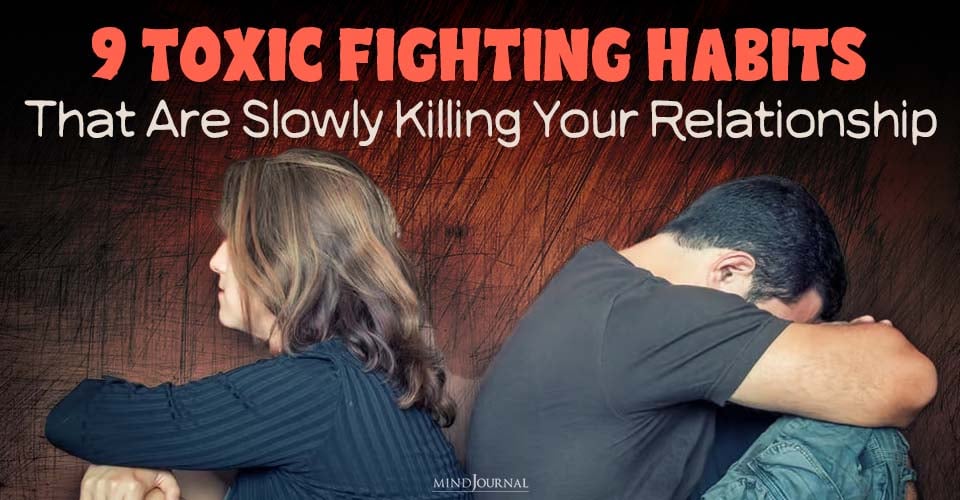Aggression is a powerful force that affects our relationships, workplaces, and communities. Understanding the characteristics of an aggressive person is crucial for navigating human interactions, especially when it’s done with clarity and compassion.
Aggression can take different forms, from explosive anger to subtle manipulation. Misunderstanding it leads to strained relationships and conflicts. By shedding light on these signs, we aim to demystify aggression, promote empathy, and improve communication.
We should remember that these aggressive personality traits are not meant to label or stigmatize individuals. Instead, they increase awareness and support personal growth. By understanding aggression, we can break the cycle and promote positive change.
But before we get into the characteristics of an aggressive person, let’s find out more about what is aggression really.
Related: Dealing With Highly Aggressive People: 7 Non-Conflicted Ways
What Is Aggression?
Aggression is a behaviour characterized by anger, hostility, or the intention to harm others physically or emotionally. It involves acting out in ways that are forceful, confrontational, or intimidating. Aggressive behaviour can manifest in various forms, such as shouting, insulting, pushing, or even physical violence.
For example, if someone frequently loses their temper and yells at others during arguments, or if they use physical force to harm someone or damage property, they are displaying aggressive behaviour.
Aggression can also be seen in more subtle ways, like manipulating others through emotional tactics or trying to control and dominate people in relationships. Overall, aggression involves actions that harm or intimidate others through force or hostility.
Read The 7 Types of Quiet Verbal Abuse That Are Hard To Notice

Causes Of Aggression And Aggressive Behaviour
- Biological factors: Genetic predisposition, brain chemistry imbalances.
- Environmental stressors: Financial struggles, overcrowding, noise pollution.
- Frustration: Blocked goals or desires leading to anger and aggression.
- Learned behaviour: Observing and imitating aggressive actions.
- Socialization: Exposure to violence in family or media.
- Substance abuse: Alcohol and drugs lowering inhibitions.
- Psychological factors: Personality disorders, impulse control issues.
- Cultural norms: Societal acceptance of aggressive behaviour.
- Low empathy: Difficulty understanding others’ feelings.
- Power imbalance: Seeking dominance or control in interactions.
- Lack of communication skills: Using aggression instead of effective communication.
- Injustice and discrimination: Reacting to perceived unfair treatment.
- Mental health conditions: Depression, anxiety triggering aggression.
- Perceived threat: Feeling endangered, leading to defensive aggression.
- Peer pressure: Conforming to aggressive group dynamics.
Now that we know what is aggression and the causes behind aggressive behaviour, let’s find out the characteristics of an aggressive person and aggressive personality traits.
10 Characteristics Of An Aggressive Person
1. Displaying frequent outbursts of anger.
This is one of the most glaring and obvious characteristics of an aggressive person.
They often show frequent bursts of strong anger. These outbursts can be really intense, with shouting, threats, or even physical fighting. It doesn’t take big reasons for these explosions to happen, and they can hurt other people’s feelings.
When someone gets mad like this a lot, it’s a sign that they might have trouble controlling their emotions and might end up causing problems for others.
2. They refuse to take any sort of responsibility for their behaviour.
Aggressive people usually don’t like saying they’re wrong. Instead, they point fingers at others, give reasons to escape blame, or say they didn’t do anything at all. This makes it hard for them to think about what they did and can even make fights or problems grow.
When they act this way, they miss chances to learn from their mistakes and make things better. It’s important because it can stop fights from getting worse and help them become better at dealing with problems.
Related: How To Deal With Passive Aggressive People In Your Life
3. Holding onto a lot of hostility and resentment.
One of the major aggressive personality traits is this.
People who are aggressive often have a ton of anger and bad feelings. They can’t easily forget when they’re upset with someone or when they think something bad happened to them. This keeps them feeling mad all the time, and that’s why they act aggressively.
This never-ending bitterness makes them really aggressive and causes them to have unfriendly interactions with others. However, if they could let go of these bad feelings, they might not be so aggressive and could have better relationships.
4. They always use hurtful words and try to intimidate others.
They often hold onto a load of anger and negative emotions. When they get upset with someone or believe something bad happened to them, they can’t easily move on. This makes them stay angry all the time, which is why they act aggressively.
This ongoing bitterness makes them keep up their aggressive behaviour and leads to unfriendly interactions with others. Realizing this is crucial because if they could find a way to release these bad feelings, they might not be so aggressive.

5. Engaging in physical aggression and violence quite often.
While using hurtful words is bad, it’s even worse when aggressive people turn to physical violence. This kind of aggression can put others in serious danger.
It’s crucial to pay attention to signs like getting into physical fights, intentionally breaking things, or having a past filled with violent behaviour. These signs help us figure out aggressive personality traits and whether they’re a risk to someone’s safety.
It’s not about blaming or labelling, but about understanding the potential risks and finding ways to address them. Everyone deserves to feel safe, and being aware of physical aggression is an important part of creating safer and more respectful interactions.
6. Acting impulsively and recklessly.
Another one of the major characteristics of an aggressive person. Being aggressive often links with doing things without thinking first. People who are aggressive might make fast choices without realizing what could happen afterward. They might do dangerous things or not care about how their actions hurt others.
When someone acts aggressively, they don’t take time to think about what might go wrong because they’re so focused on their strong feelings.
This can lead to doing things that are risky or harmful, like getting into fights or doing things that could hurt them or someone else. It’s like they’re on autopilot, reacting without considering the possible outcomes.
Related: 7 Ways To Deal With Verbally Aggressive People
7. They struggle to handle their frustration.
Aggressive folks struggle with handling their frustration and let-downs. When things don’t go as they want, they quickly get bothered or irritated. This trouble in managing their feelings makes their aggression even stronger and causes them to react explosively.
It’s like their anger builds up because they can’t deal with being upset. This can lead to shouting, arguing, or even physical fights. Understanding this helps you see why they act this way and encourages finding healthier ways to cope with these emotions.
8. They are manipulative and controlling.
You can often understand the characteristics of an aggressive person by how they try to control and influence others. They might do things like making you feel unsure about yourself or using emotions to get more power. It’s like they want to be the boss and have control.
They might use tactics that make you feel like you have to do what they want. This kind of behaviour is about dominance and showing that they’re in charge.
9. A severe lack of emotional empathy and emotional awareness.
Wondering what are the characteristics of an aggressive person? Look out for this sign!
Aggressive people often don’t understand how others feel, and they have trouble seeing things from their perspective. They don’t realize or care about what someone else is going through.
This makes it tough for them to get along with others and can lead to fights. It’s like they’re missing the ability to connect with other people’s emotions. This can cause problems and make relationships harder.
It’s good to know this because it helps us understand why they act the way they do. Finding ways to help them understand others better can lead to smoother interactions and fewer conflicts.

10. They show a consistent pattern of aggressive behaviour.
One of the biggest aggressive personality traits is to notice if they keep acting aggressively over and over again. It’s not just about one time; it’s a habit they have. This will help you know that it’s not just a random thing, but how they usually behave.
If you see this happening a lot, you can tell it’s part of their personality, not just something that happened once. It’s important to understand this because it can help you know when it’s a real problem and not just a one-time mistake.
So, if you notice someone acting aggressively often, it’s a sign that there might be a deeper issue with how they handle their feelings and interactions.
Related: What Is Social Aggression: How To Spot And Stop It
Takeaway
Recognizing the characteristics of an aggressive person is essential for building healthier relationships and communities. By understanding these ten aggressive personality traits, you can develop empathy, improve communication, and create a safer environment for everyone.
Have you ever noticed any of these aggressive personality traits in someone close to you? Let us know your thoughts in the comments down below!











Leave a Reply